Lone Wolf: The Huntress Gamebook Trilogy
Author Interview: Jonathan Stark
The 1st Lone Wolf spinoff in over 30 years, set 50 years before “Flight from The Dark”. Join Rediscovered Realms’ wolf pack as we discuss this gamebook trilogy with the author, Jonathan Stark.
(Make sure to read to the end to find out how you can win a complete signed deluxe hardcover set! 🐺)
JQ: Welcome Jonathan! Wow, your Lone Wolf Huntress trilogy is making quite a splash. Even Demian’s Gamebook page gave you some of the highest praise I’ve ever seen! What, if anything, surprises you the most by his and others’ response?
JS: Demian’s response was amazing because he has read so many gamebooks and has been writing about them since 1998. So to stand out to him feels like a huge accomplishment and I’m grateful for his eloquence in describing the books and his passion for recommending the adventures.
But the responses that have surprised me the most have been the readers who became so connected to the characters that they told me they cried during certain sections – especially in book 2. That was a real honor to hear. It is especially difficult to write compelling characters in the second person voice, so to hear that more than a few have attached to them in this way was very touching.
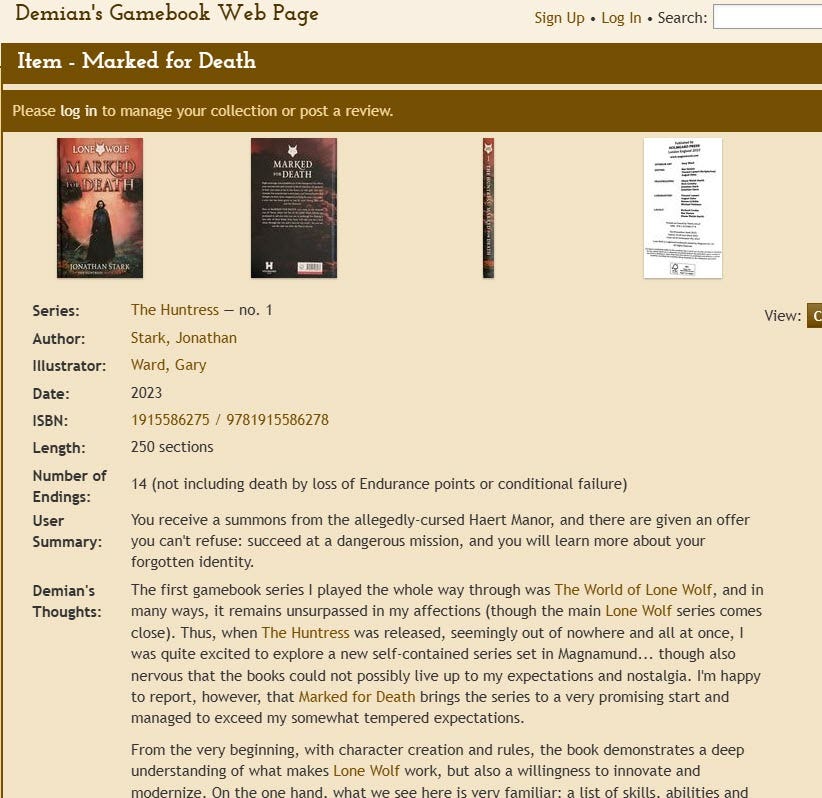
JQ: Well, I’m in the middle of reading the 2nd volume and have to say am loving it! I’m (fortunately? 😬) old enough to remember the 1st Lone Wolf book by Joe Dever released 40 years ago. It was groundbreaking in my world, and I know for you too. Share with us a little bit about what made the old school Lone Wolf books so special to you.


JS: Haha, I share an anniversary with Lone Wolf, so when I hear it’s forty years old and people say “wow, it’s really old!” I sort of hide.
I continued to be impressed by how many people say Lone Wolf has shaped them in some major way. I lived this myself, I really struggled to connect to my peers when I was young. School wasn’t a good environment for me, I have OCD and ADHD and being made to sit still for hours in a classroom was mentally and emotionally draining.
I was always looking to escape, and Joe Dever provided a place to do that. I wasn’t into sports, and I didn’t watch a lot of television or listen to popular music, and when I grew up you couldn’t talk about liking books and video games at school – it was considered super weird and uncool.
My parents were always supportive but that’s different from having your peers be supportive. When I would open Lone Wolf, I felt like I wasn’t alone. Joe was there, as a friend, having a conversation with me, reacting to my choices and absolutely loving fantasy alongside me.
You could feel his love for his world coming through the books. In Magnamund, it was okay to be weird . . . I mean, Lone Wolf is the weird one who doesn’t sit still in class. And in their case, it ends up making them the hero.
JQ: I totally feel you there! Although movies back then like “Revenge of the Nerds” gave voice to some of us more sensitive & cerebral souls, made heroes of the downtrodden, and started to make non-jockdom somewhat socially acceptable, it didn’t really do much for our image & self-confidence.
Books were always my escape & refuge. And when you happen to have read a really good book, it felt like being part of a secret community that only other readers could appreciate.
I heard you state in the Imaginary Worlds podcast: “These weren’t just books we read. These were stories we lived. And the choices we made mattered.” So powerful. That hit me right in the heart. What do you think it is about fantasy as a medium that can connect strangers together regardless of age, location or era?
JS: All the way back to the tales of Beowulf and King Arthur, fantasy has always been about finding heroes. That’s something all of us can relate to and it is why these mythologies have remained popular for so long.
It is easy for us to find monsters . . . I mean, ask anyone what they are afraid of, and they’ll be able to answer fast. But ask someone what makes a hero, and they’ll have to think about it . . . it’s a lot harder to define this.
Fantasy is a sandbox where we can explore what being a hero means, away from the confines of our modern world and reality. This is what good fantasy does, it sets up parameters and tests its heroes or heroines against that and tries to see what shakes loose.
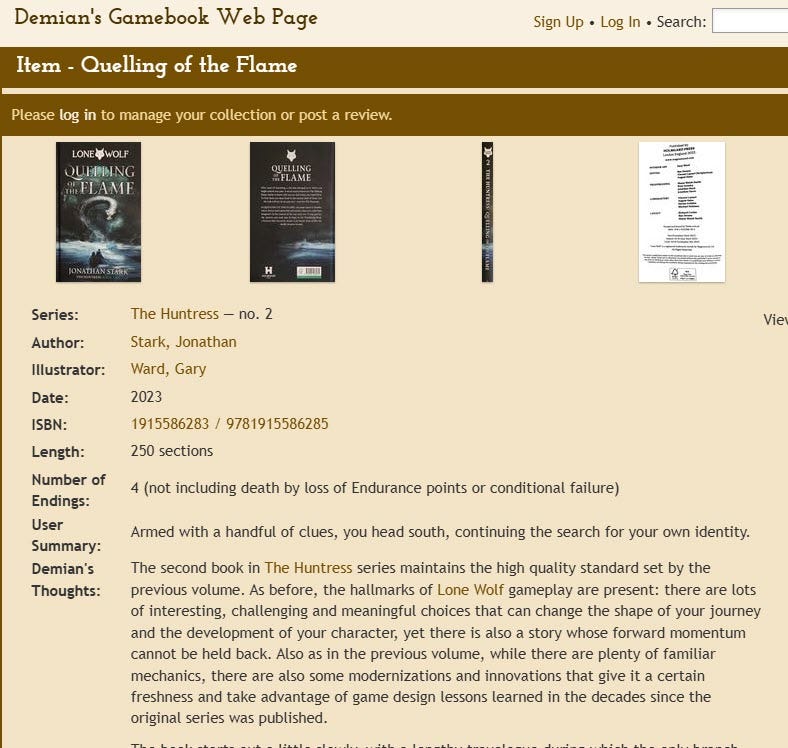
“Fantasy is a sandbox where we can explore what being a hero means, away from the confines of our modern world and reality. This is what good fantasy does, it sets up parameters and tests its heroes or heroines against that and tries to see what shakes loose.”
- Jonathan Stark
Does being a hero mean leaving your Hobbit hole and going on an adventure?
Does it mean staying true to your honor, even as everyone around you plays the game of thrones?
Does it mean winning the game of thrones?
Or does it mean taking up position as an innkeeper away from the world and hiding your true name so that you don’t hurt anyone else?
We get to see how this plays out for those heroes . . . it’s like an experiment seeking the philosopher’s stone of “heroism.” It isn’t always a happy ending, but we always learn something from it, and I think we take those lessons back with us to the real world and hopefully it makes us better people.
JQ: Powerful. Another insightful statement you made had to do with the power that Interactive Fiction can have on those who are unsure of themselves and finding their own path.
You said that the Lone Wolf world took you in when maybe you didn't feel safe or like you belonged in the real world. And that gamebooks like Lone Wolf can get you “switching from fleeing from trauma to facing trauma and facing your fears.”
As an introvert, and someone who grew up in that time when it wasn’t “cool” to be into Fantasy, D&D and the like, I totally identify with that feeling of agency and empowerment you described.
I now often say, “Fantasy matters”, but to take it to the extreme, we could maybe extend that to “Fantasy saves lives.” Do you think that’s true?
JS: Fantasy shapes lives and I think that’s just as important. Nurses, therapists, parents, firefighters . . . these people save lives.
The role of a storyteller is to help readers do something with those lives, to be inspired to put back into the world their own stories.
“The role of a storyteller is to help readers do something with those lives, to be inspired to put back into the world their own stories.”
- Jonathan Stark
Stories stay with us.
They inform our decisions, help us reflect, and give us a board on which to lay out all our emotions from fear to admiration.
Stories are how we pass on our cultural DNA to the next generation. It’s where our values are kept.
DID YOU KNOW? Jonathan has a FREE Lone Wolf Huntress prequel that you can play online, called Shadows Over Fire?
JQ: Well said! In that same (excellent) podcast, the host, Eric Molinsky, also blended interview questions with Joe Dever’s son, Ben. Ben mentioned “We've really got a job to do to bring them [gamebooks] back into the mainstream. They seem to have been a flash in the pan for the publishing industry."
Is this something of a mission for you as well?
JS: Absolutely, and for Lone Wolf in particular. The incredible amount of effort, time, and money being put into the world of Magnamund by Ben is inspiring.
One of the goals I had with the trilogy was to try and reach new audiences. And we’ve seen some success with that. I’ve been hearing from a whole new generation of readers that they are picking up The Huntress and entering Magnamund for the first time.
One story I heard was about a child who didn’t like reading until they found The Huntress, another was from a young boy who read The Huntress and now wants to be a writer themselves.
And I hear from girls and women, especially, that they are excited to have the main character explicitly be a woman and for a gamebook not to feel like a male power fantasy. Which we don’t have enough female voices in the industry, or enough LGBTQ+ voices.
I wrote The Huntress not to be a replacement for those voices but in the hopes that it inspires someone from those communities to pick up the pen themselves.
In Vassagonia there is a saying: Two things surely will curse you: the keeping of a secret and the seeking of a secret. In your case, you are doubly cursed, for the secret you seek is your own.
- Lone Wolf, The Huntress, “Marked for Death”
JQ: Ok. The Huntress. When I cracked open the first volume, “Marked for Death” I was instantly transported back to being a kid and feeling giddy like I just bought a new Lone Wolf book from the Scholastic Bookmobile!
Other than it being hardcover, the artwork, style and story are old-school-classic-style and I love it.
Tell us a little about the process of working with the artists (Gary Ward and Christopher Shy), the Lone Wolf community, and the other extremely talented individuals who made this project possible.
JS: There are so many people who need to be given praise for making The Huntress happen.
Ben, for giving me the opportunity and for putting lots of support behind the books; Vincent Lazzari for being the loremaster and making sure the books were consistent with Magnamund (some of my favorite ideas were inspired by conversations with him), August Hahn for tirelessly leading the editing efforts and supporting my frequent changes to the text, my wife for playtesting and for caring for our son during the crunch period . . . you can see that nothing is achieved alone, only together can we build worlds.
But you asked specifically about the artists, and I can tell you that seeing the process of making the art from Christopher Shy and Gary Ward was absolutely watching magic happen.
They astounded me with how well they saw what was in my head. Gary was very kind – he told me the writing was strong enough to paint the pictures themselves. I formed a real bond with Gary, and I cannot pick up the books without thinking of him, his easy demeanor and amazing work ethic, and his enthusiasm for the work.
Gary showed me what The Huntress sees. And he was instrumental in me fixing a few sections, too. When you are writing, sometimes you get so lost in the words you don’t realize what you’re describing doesn’t actually make much sense, hah!
There’s a section in book 3 where you fight while riding in a mine cart and it wasn’t until I was describing the scene to Gary for him to draw that I realized the creature fighting you could never fit in the mine cart! So I went back and changed the whole scene based on just that one art piece.
JQ: I love the angle you took with your story. You stated in the Journeys Through Magnamund podcast to August Hahn that in classic Lone Wolf books, the main character is chosen to fight for the forces of good. So you posed the question, “What if there was a ‘neutral’ character that was caught up in this struggle and they were forced to navigate a universe at war?”
That provides so many options to write for as a gamebook author! How did you achieve it?
JS: I had to make this a story not about the war first but about the character first.
There is a deliberate pacing to these stories. In the first book, the reader is able to pursue their goals without compromise.
In the second book, the reader is put in many situations where they have to choose between their personal goals and the lives of others – and they are given the freedom to make those choices and have them effect the overall narrative.
Then in book 3, the war of the gods directly interferes with your mission.
It was done this way so that the reader would get to know The Huntress on a more mundane level first so that by the time you are dealing with world shattering events in the third book you have that connection to the character and are able to feel how these events affect her.
JQ: Well done! There is so much to talk about with your books: the importance of inventory management, the way you use combat ratios that are dependent on equipment/skills/previous choices, the way you honored Joe Dever’s creation with care & respect, AND you even got to create some brand new lore for the world of Magnamund . . . Which aspect of these books are you most proud of and why?
JS: I wanted to play with the very medium of the gamebook itself and I’m most proud of how that came together.
I can’t go into further details because specifically what I’m talking about is a secret ending to the series. It’s fun, because not everyone has found that and it has encouraged others to go looking for it, meaning some people have played the books five, six, or more times.
That leads to another thing I’m really proud of, which is that I’m hearing from these players that they are still finding new things on their fifth, sixth, or seventh times through the books and still enjoying reading it.
That was my biggest goal, to make books that are 250 sections long feel like they contained 400 sections worth of adventure.
JQ: Ooh - a secret ending! I can’t wait to get there. Talk to us about your biggest challenge in getting these books created.
JS: Pretty much what I was just saying: fitting everything I wanted to do within 250 sections per book.
Especially since I was tackling some new concepts for Lone Wolf. For instance, Book 2 has an open world section and Book 3 . . . ah, I don’t want to give away spoilers . . . let’s just Book 3 actually made me feel like I was losing my mind while I was writing it.
I actually experienced some dissonance while constructing that book, I think I was forcing my brain to think in such out-of-the-box ways that my view of even reality just kind of . . . shifted. New doors showed up in my mind and I could feel them opening.
I ultimately enjoyed this particular challenge. Working with less forces us to say more and to make each word count. The Huntress feels like a very tight series, where every section matters, and I think that’s a big part of the eagerness people who have read it are showing.
There are no unforgettable moments in the series . . . I didn’t have space to put any in!
Aside from this, I’d say the hardest challenge was simply finding time to write. I wrote all three books in about a year (not counting editing and proofing) and during that time was also working a full-time job, running the monthly Journeys Through Magnamund Podcast, and raising a 2-year-old.
The only way I was able to do it was due to the flexibility and willingness of my lovely wife, Aubrey, who so many nights said I should go write and so many days took our son, Taran, out to the park to give me a chance to meet my deadlines.
You can obviously get very much lost in your own head while writing and coming out of that fog and finding my family there waiting for me was an important anchor. These books would not have been possible without Aubrey’s support.
JQ: Wow - that was a crazy schedule! I love that you were able to get the support of your family. It may take a village to raise a child, but it sounds like it takes an entire developed country to write a book!
What’s one recommendation you would give to other fantasy creators who have been sitting on a dream to bring their “something” into this world? Or put another way, what’s one thing you know now that you wish you knew then?
JS: My advice is to not listen to that voice inside of you that tells you “no”.
This entire project started because, on a whim, I sent an email to Ben saying that I would love to work in the world of Magnamund.
Reach out to your heroes.
It’s okay if they don’t write back because the important thing is that you took that step.
By doing that you are sending yourself a clear message: “I am worth this”. We don’t send ourselves enough love letters. Do this for yourself.
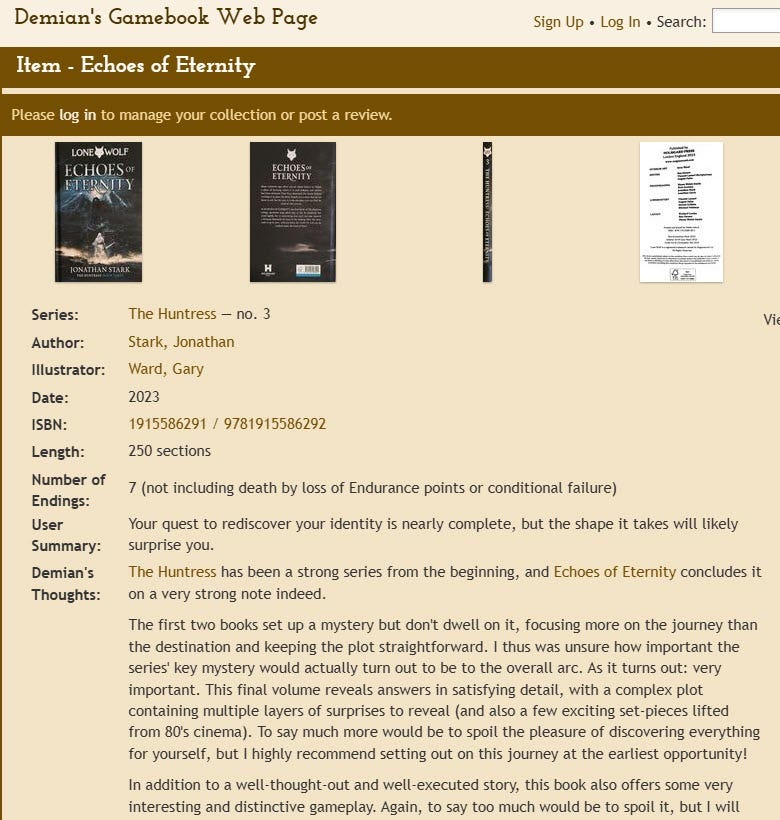
“Reach out to your heroes. It’s okay if they don’t write back because the important thing is that you took that step. By doing that you are sending yourself a clear message: ‘I am worth this’.”
-Jonathan Stark
And write! If you have an idea, write it! Play in that space. Don’t worry about whether it’s good or not, just start getting words on paper. You can always make it good later.
I rewrote each book of The Huntress series at least twice, nearly from scratch, with it getting better every time.
If you are putting perfect words down the first time, you’re doing it wrong (because they aren’t as perfect as you think they are, and that’s okay).
JQ: Boom. Some wisdom bombs there.
So, Jonathan, your foreword in “The Huntress: Marked for Death” tells a meaningful backstory about when you were a kid your dad always wanted to be a published author - and though Life and providing for his family crowded out his dream, he would make the time to write and tell stories with you - he would in your words, “create worlds and give life to words.”
In the Imaginary Worlds podcast you expounded, "It would be really cool if one day I could bring my dad a book that I published and said ‘your stories have come through me and influenced me, and a bit of you is in this book. A bit of you is here. So, look, you've been published, in a way.’"
What a beautiful expression. And you did exactly that. Bravo.
JS: Yes, and my dad is reading the books right now!
It’s fun to see The Huntress sitting on his shelf among good company like Louise Erdrich, Tom Robbins, and John Irving. He enjoys systems, so right now he’s mapping every possible path (good luck, Dad, on that!)
Both he and my mom have asked me to run it like a D&D game for them, with me reading it and letting them make the choices and fight the combats. I haven’t had time yet but I’d love to do it.
JQ: Oh, heck yeah. You HAVE to do that. But I suggest you compromise by only reading to them if they agree to wear some armor and funny helmets.
Hey, by the way, I meant to ask earlier, but what are some of your other fantasy influences – books, movies, games and the like?
JS: Lone Wolf is absolutely my biggest influence. I hadn’t appreciated how big until I started writing and really analyzing Joe’s style and finding almost all of my interests embedded in those books, from tragedy to horror.
I even run my D&D games with a lot of “Joe” in my worlds and approach. When my players fall prey to deadly traps and horrible monsters, I always tell them to blame Joe.
Other influences absolutely include Tolkien’s Middle Earth as well as Lloyd Alexander’s world of Prydain (his series is where my son takes his name from, and Taran Wanderer is one of my favorite books of all time), the works of Alan Moore and Neil Gaiman, Stephen King’s The Dark Tower, and everything Indiana Jones and the Alien movies.
The most important television show I ever watched was Disney’s Gargoyles – Lone Wolf gave me my creative voice while Gargoyles showed me how to do arcing plots.
And then there’s a whole host of video games . . . Chrono Trigger is why to this day I love time travel stories and the Final Fantasy series has a similar tragic feel to it as Lone Wolf.
If you look at the history of the founders of Square Soft (who make the Final Fantasy games), the designers were very much outcasts, and they came from a culture that was dealing with the aftermath of trauma from the dropping of the bomb during World War II. They share that with Joe Dever, who was also using Magnamund as a place to work out his own family traumas, as discussed in Eric Molinsky’s podcast.
Both Joe and the Final Fantasy creators were making games at the exact same time, and both were influenced by D&D and other gamebooks . . . Final Fantasy’s title was originally going to be “Fighting Fantasy,” but was changed because of the existing gamebook of the same name.
So every time I work on a project, I think of these connections and how events and traumas that have happened to other people end up shaping my own voice.
I think it’s very important to know where we came from, creatively, and to respect the traumas people often went through that led them to express themselves through writing.
“I think it’s very important to know where we came from, creatively, and to respect the traumas people often went through that led them to express themselves through writing.”
- Jonathan Stark
JQ: Interesting - I did not know that about Square Soft. I never watched the Gargoyles TV series when it was on (I loved Disney’s Gummy Bears though!) but will track them down due to the meaningful influence they had on you.
What are some upcoming projects or cool stuff you’re working on?
JS: Speaking of trauma, I wanted to do a book that touches on some of the traumas of my own life or at least is informed by them. And so I’m working on a gamebook that has that as a central theme, worked into a plot heavily inspired by the aesthetic of Lovecraftian horror.
I can’t say much more now without risking getting into non-disclosure territory but when I can talk about it, I’ll be sure to reach out.
JQ: Please do Jonathan! It’s been such a pleasure getting to know you better and delve into the beating heart beneath the breastplate of your Lone Wolf Huntress trilogy.
You can connect with Jonathan Stark and find out more about his Lone Wolf passions here:
Purchase The Huntress at Holmgard Press
The Huntress trailer on YouTube
Shadows Over Fire, the FREE prequel to The Huntress series, playable fully online
Imaginary Worlds Podcast Episode about Lone Wolf
Journeys Through Magnamund Podcast where Jonathan co-hosts
Want to win a complete deluxe hardcover SIGNED set of The Huntress Lone Wolf books?
Make sure to enter Rediscovered Realms’ Lone Wolf Grand Gamebook Giveaway contest. It’s free and open until June 30th!
It’s expensive running a kingdom these days. That’s why occasional support from Generous Adventurers like you helps keep Rediscovered Realms’ moat stocked with monsters and swords sharpened for action.
(Androidicus is worried about his job (again!), so he’s slashing prices - for a limited time, sword+1’s are reduced to only $2/ea!)
Do you love heroic fantasy gamebooks like me? Consider signing up to be informed when I launch my very 1st one!
(Featuring artwork from Clyde Caldwell & Luke Eidenschink!)



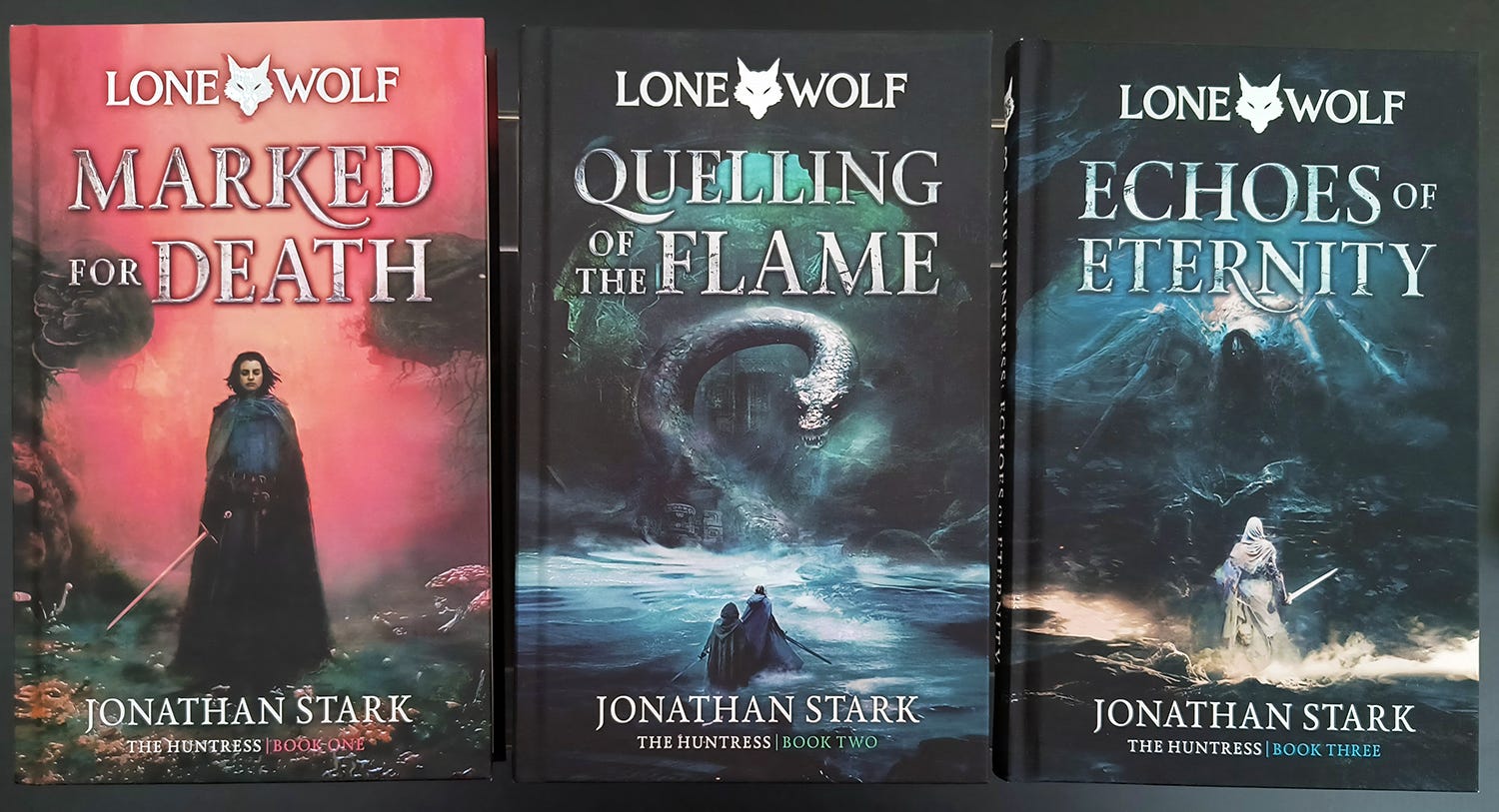
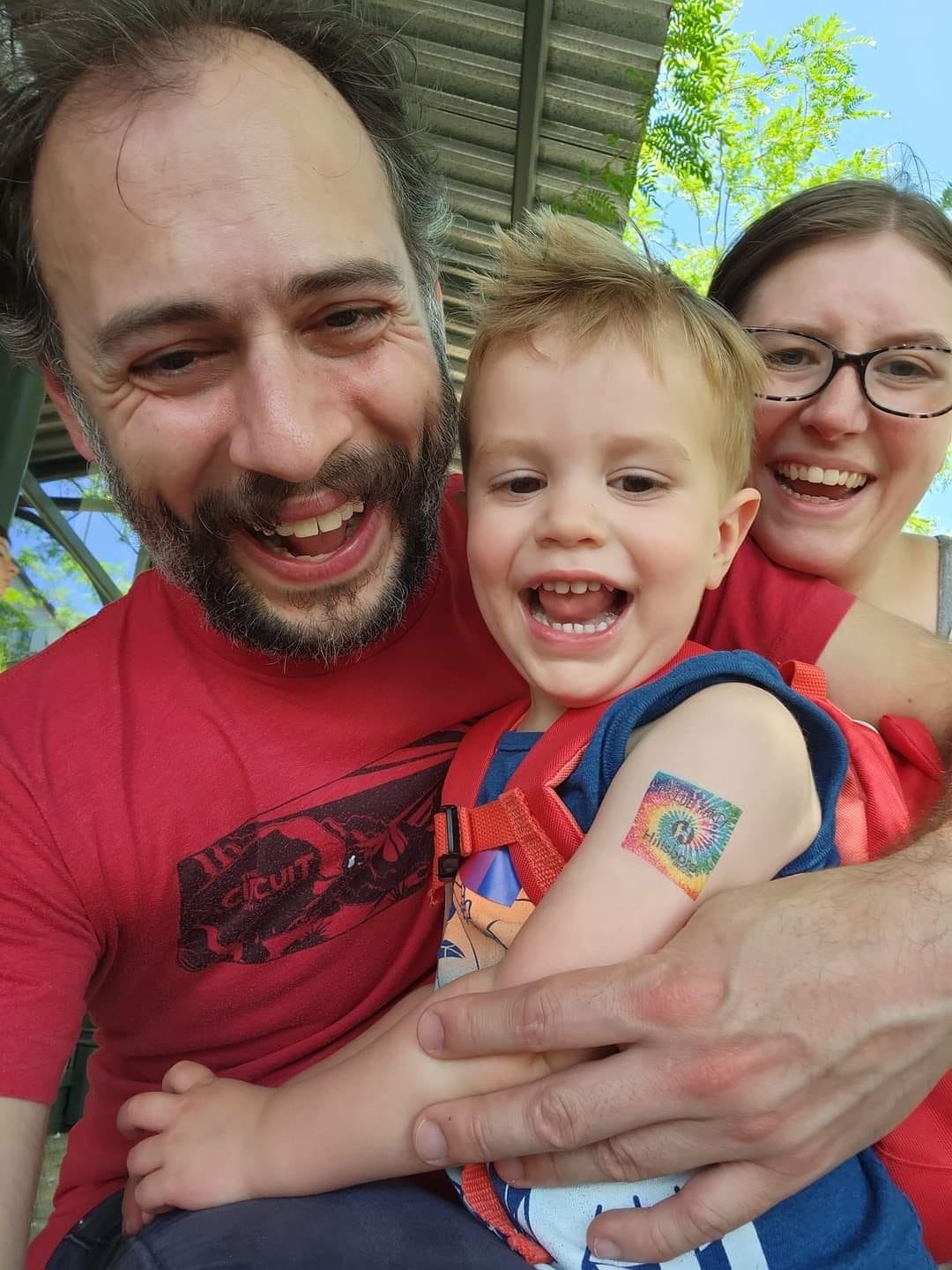

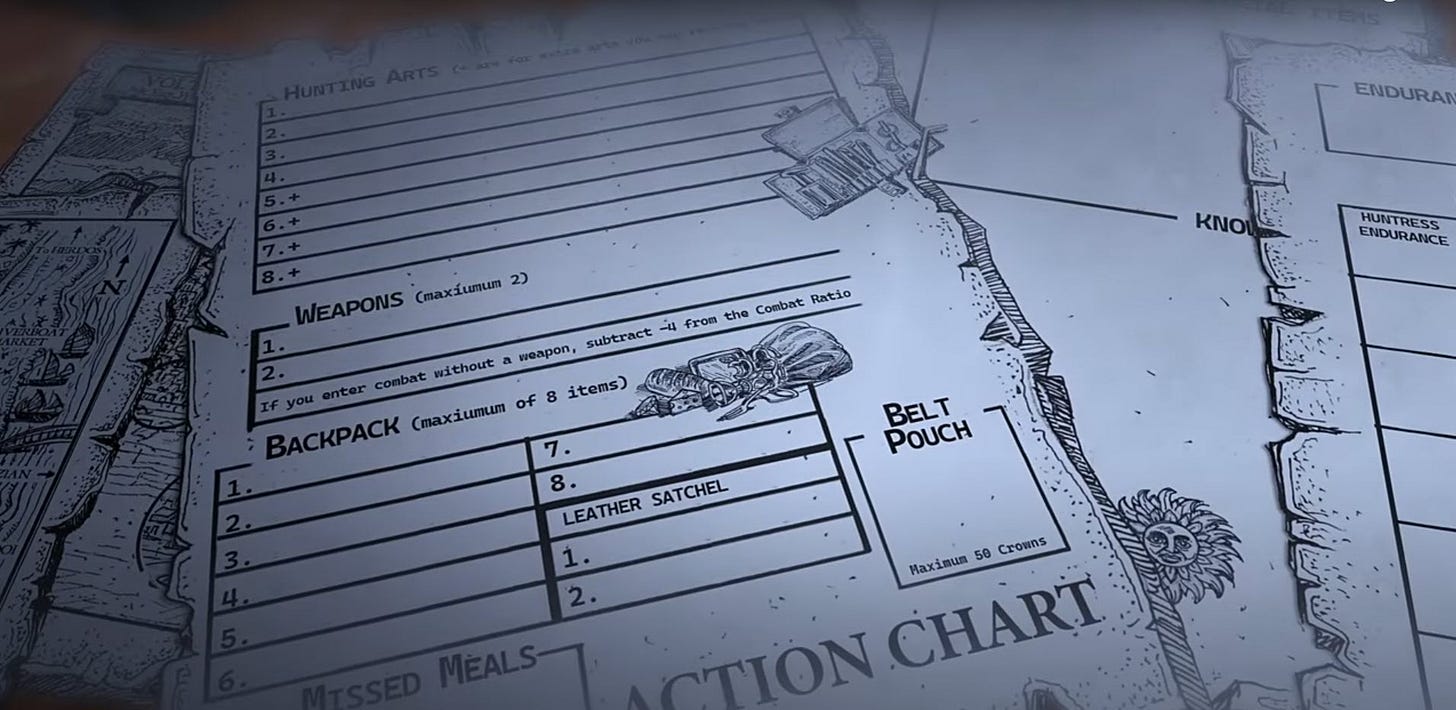
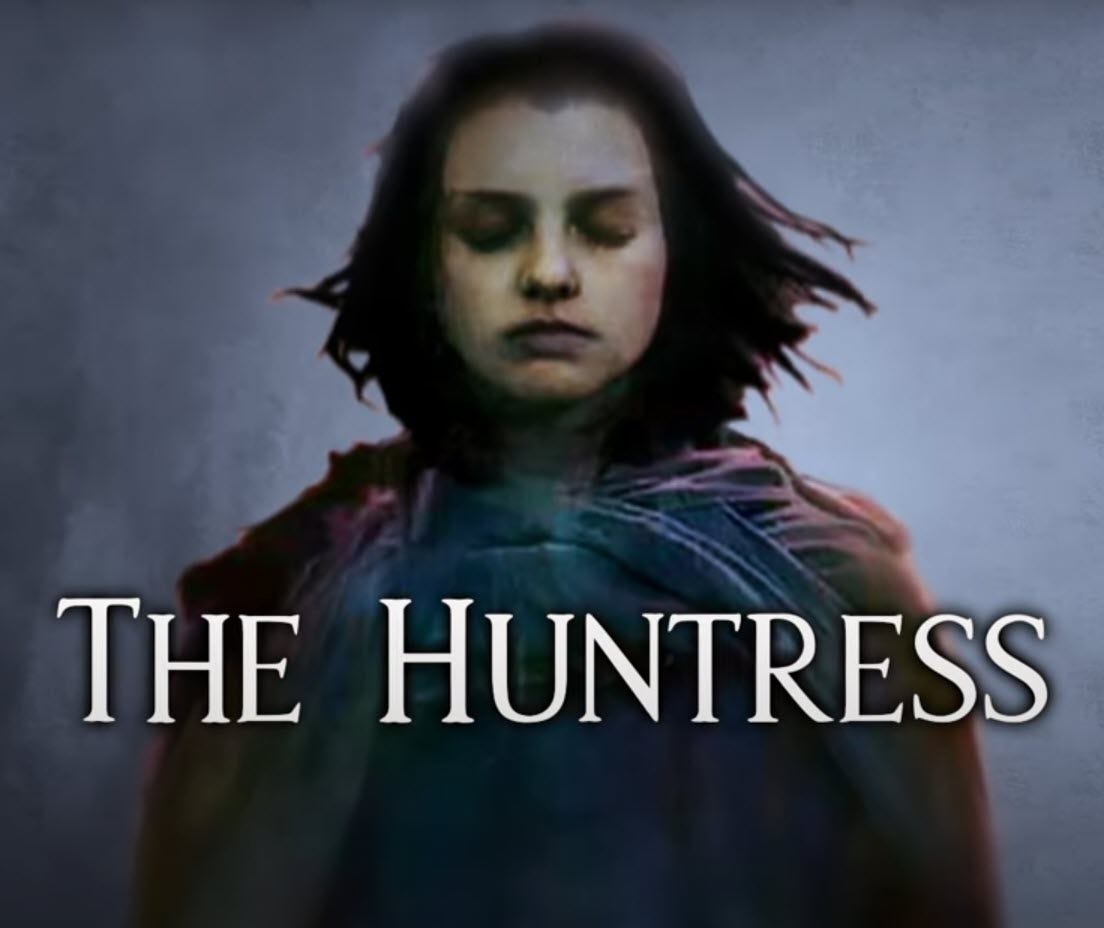
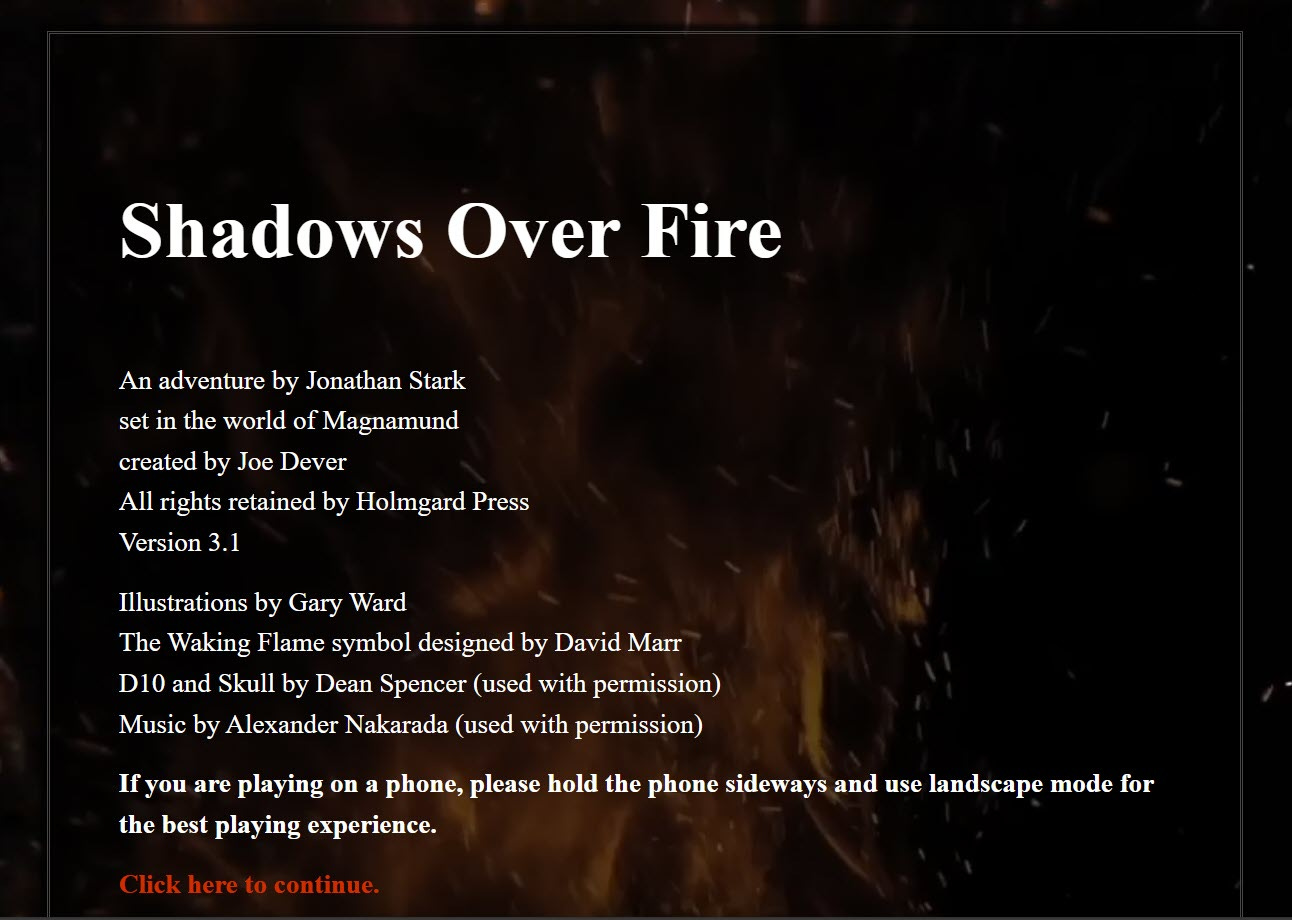
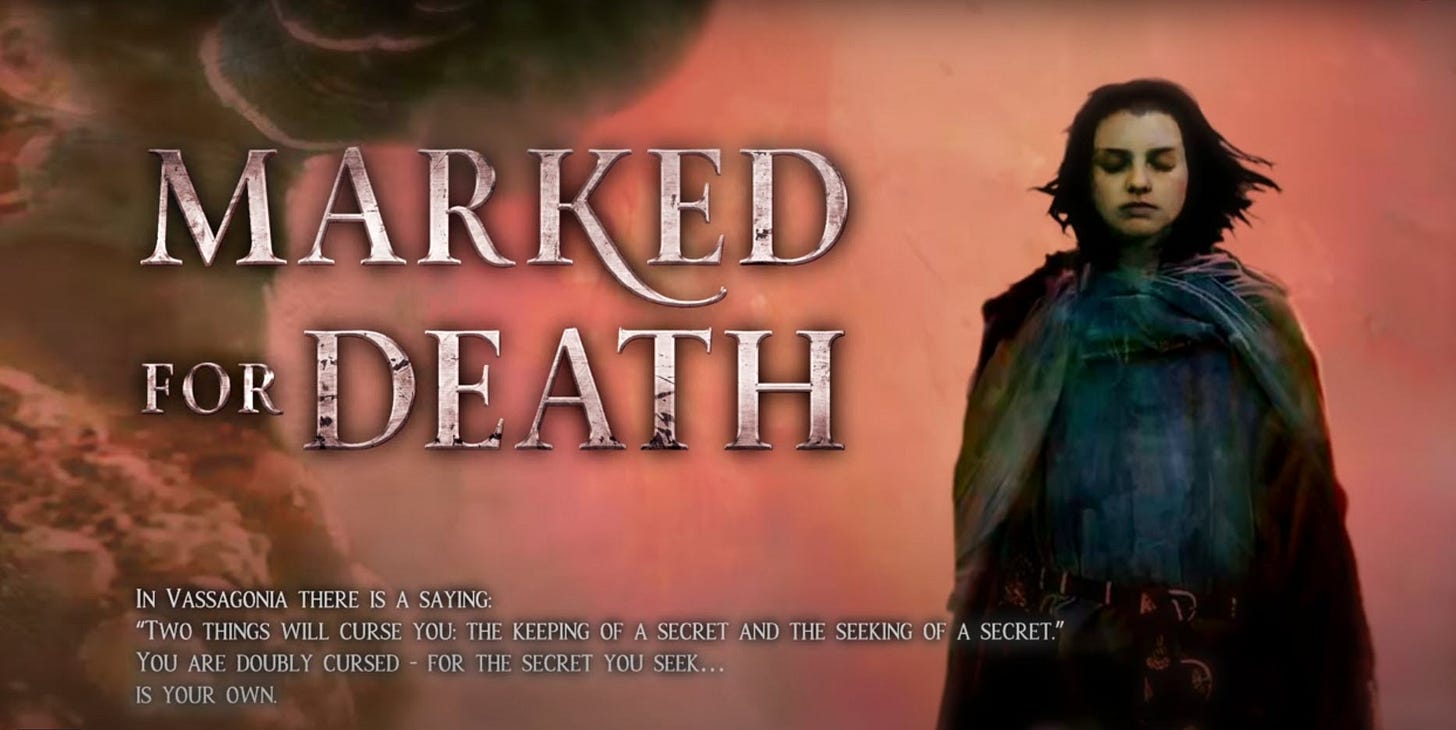
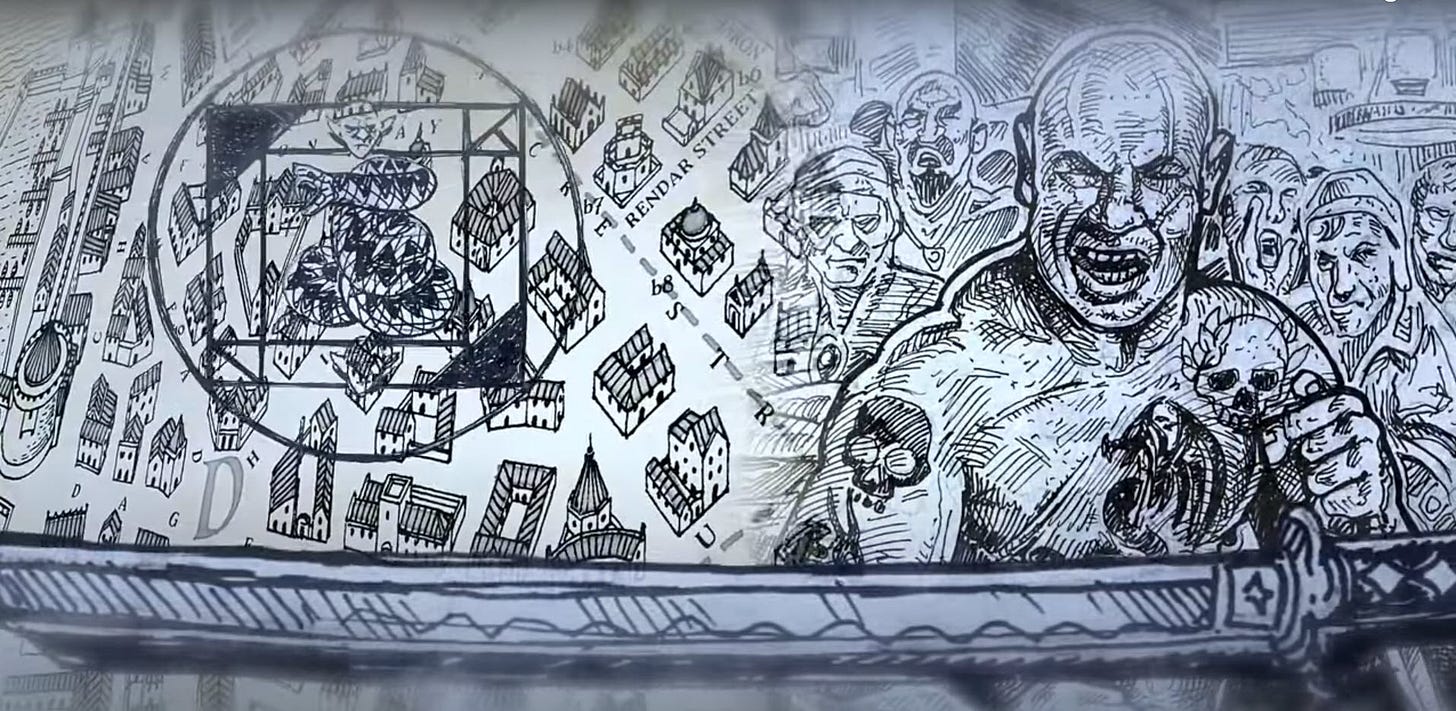
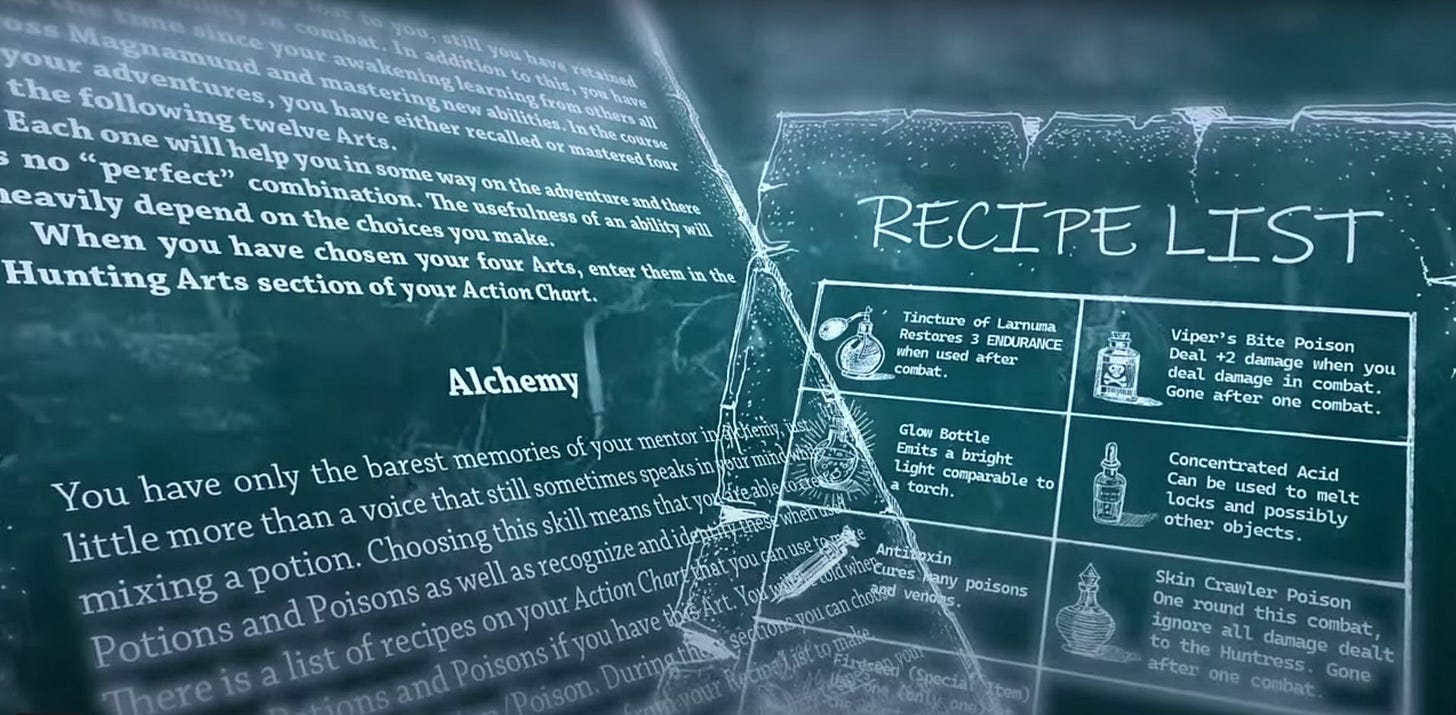
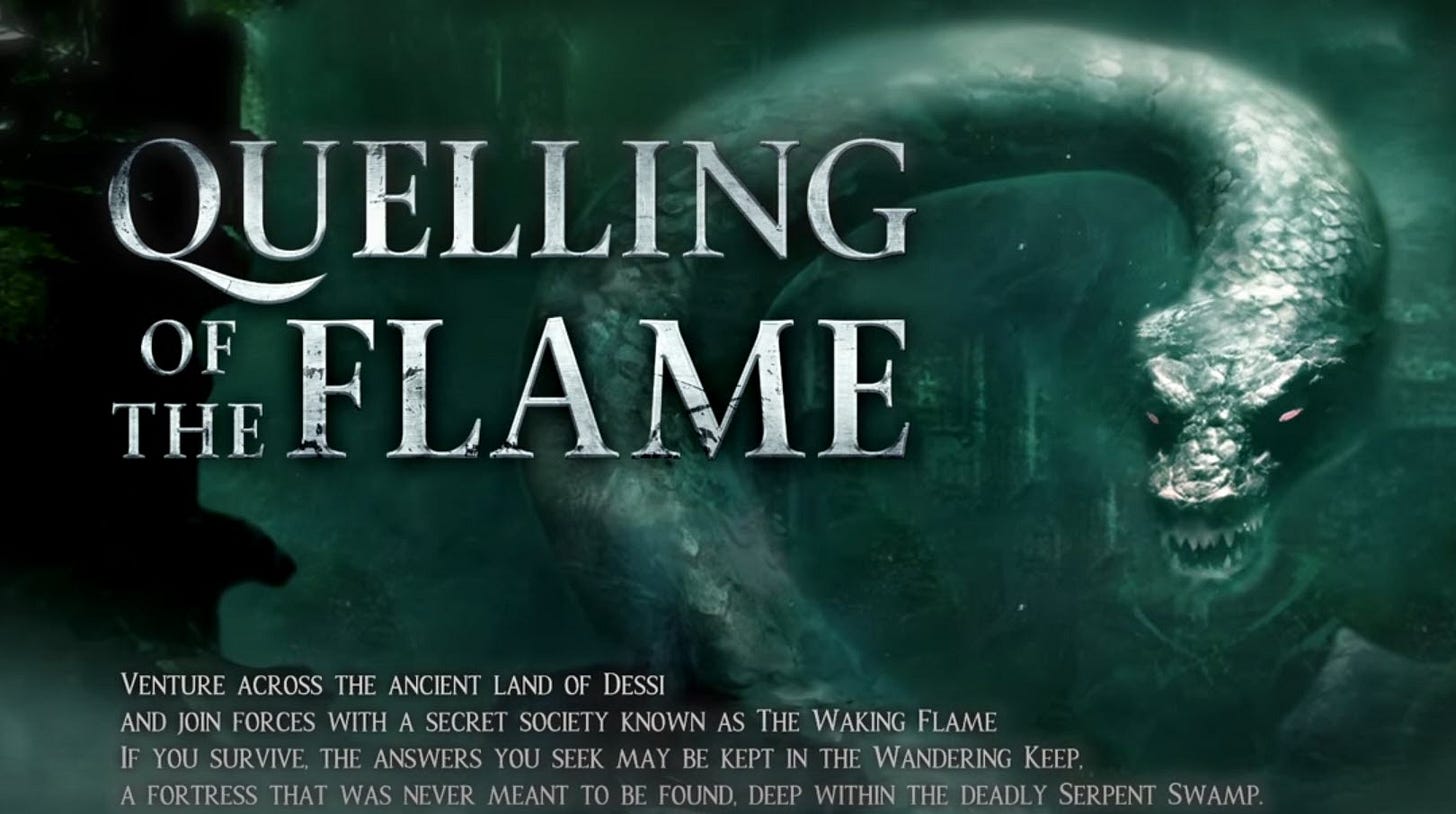
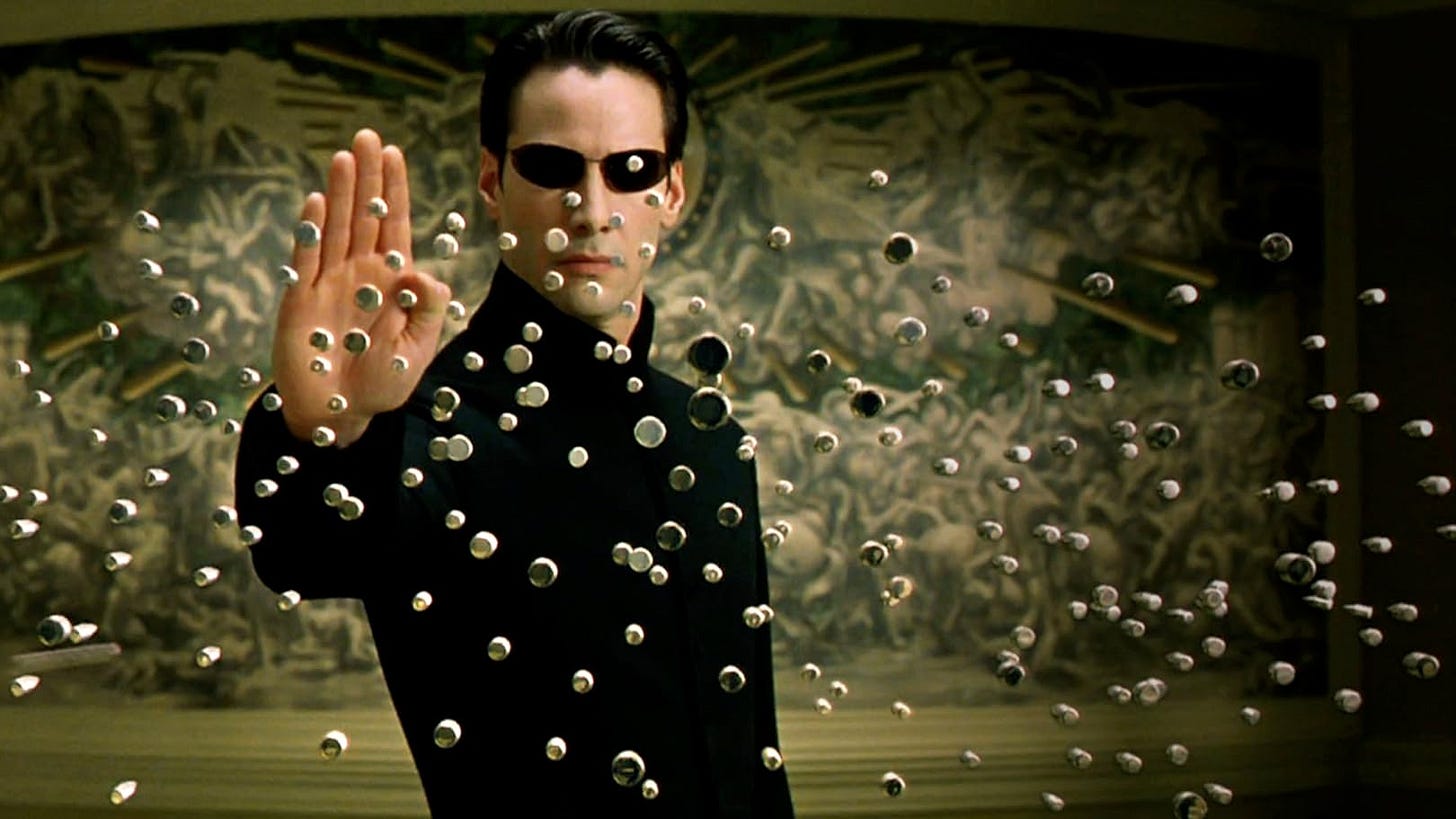
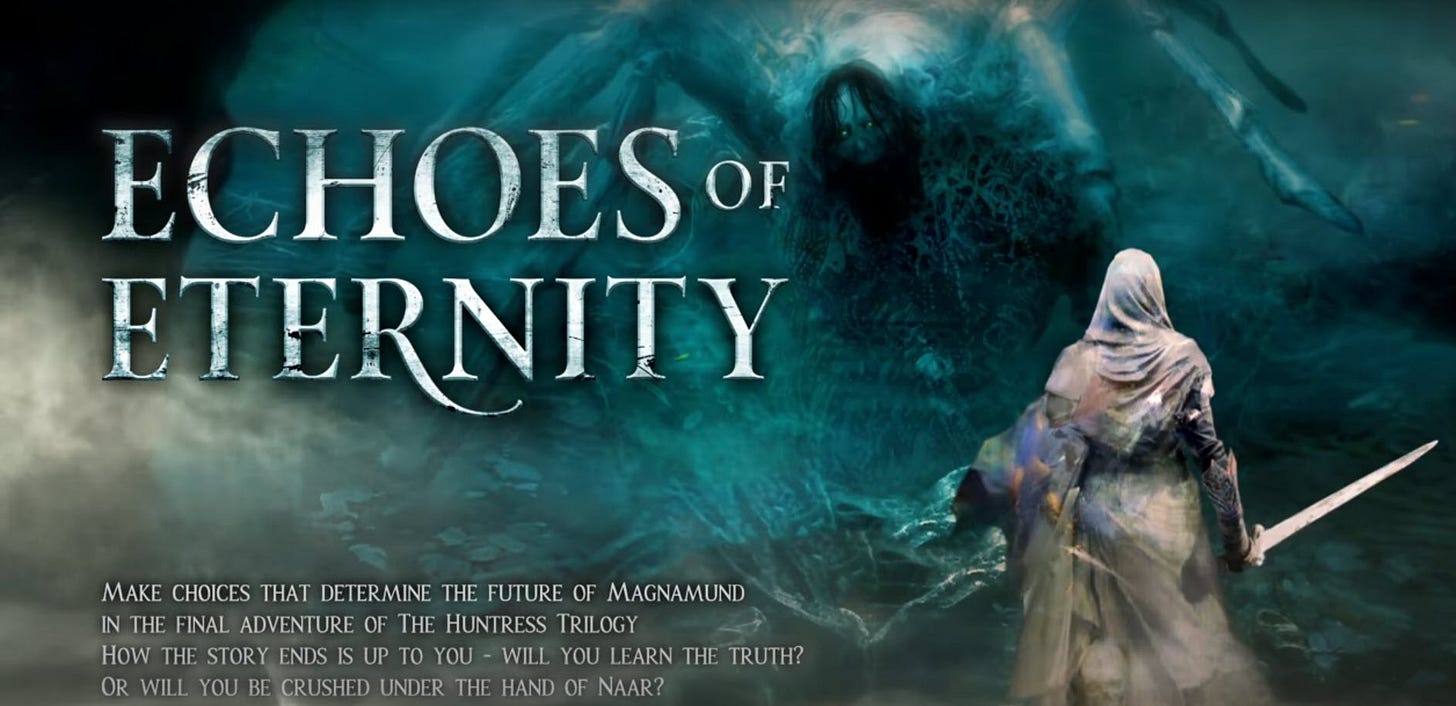
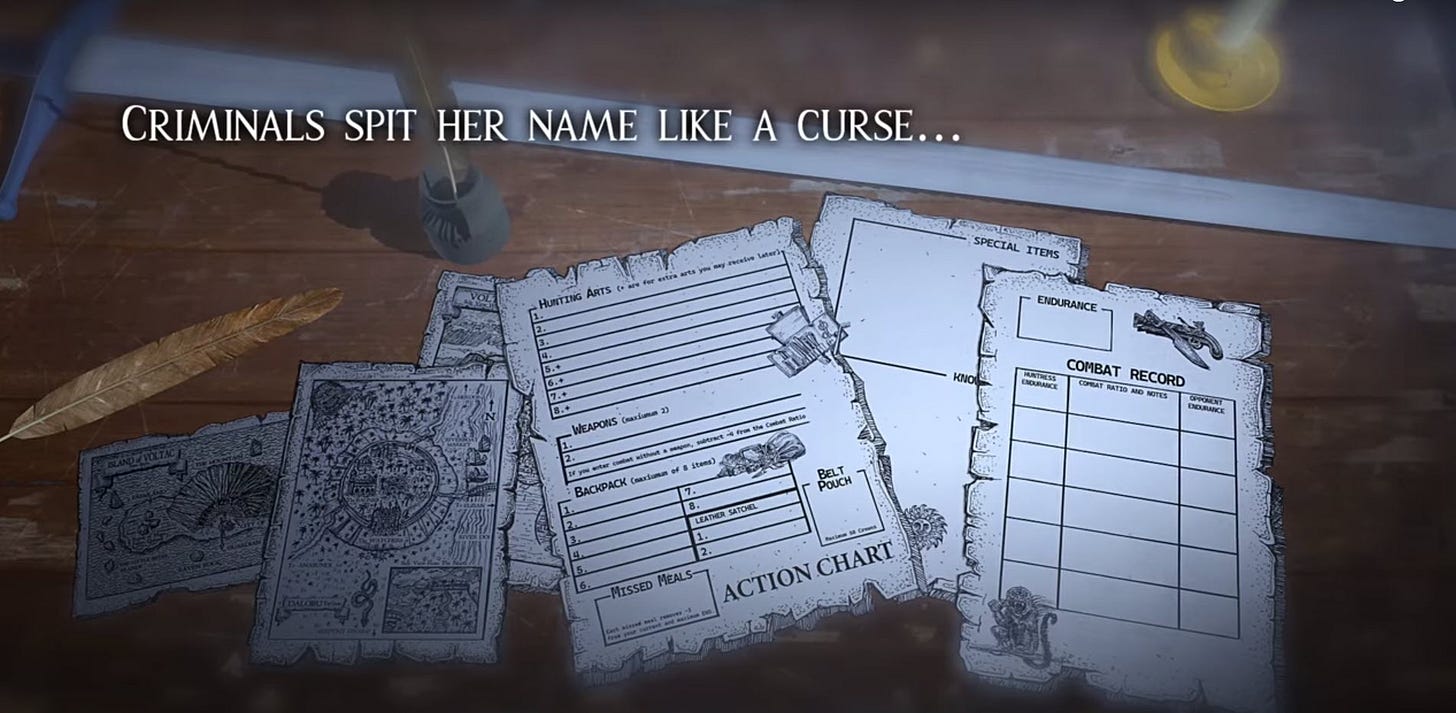
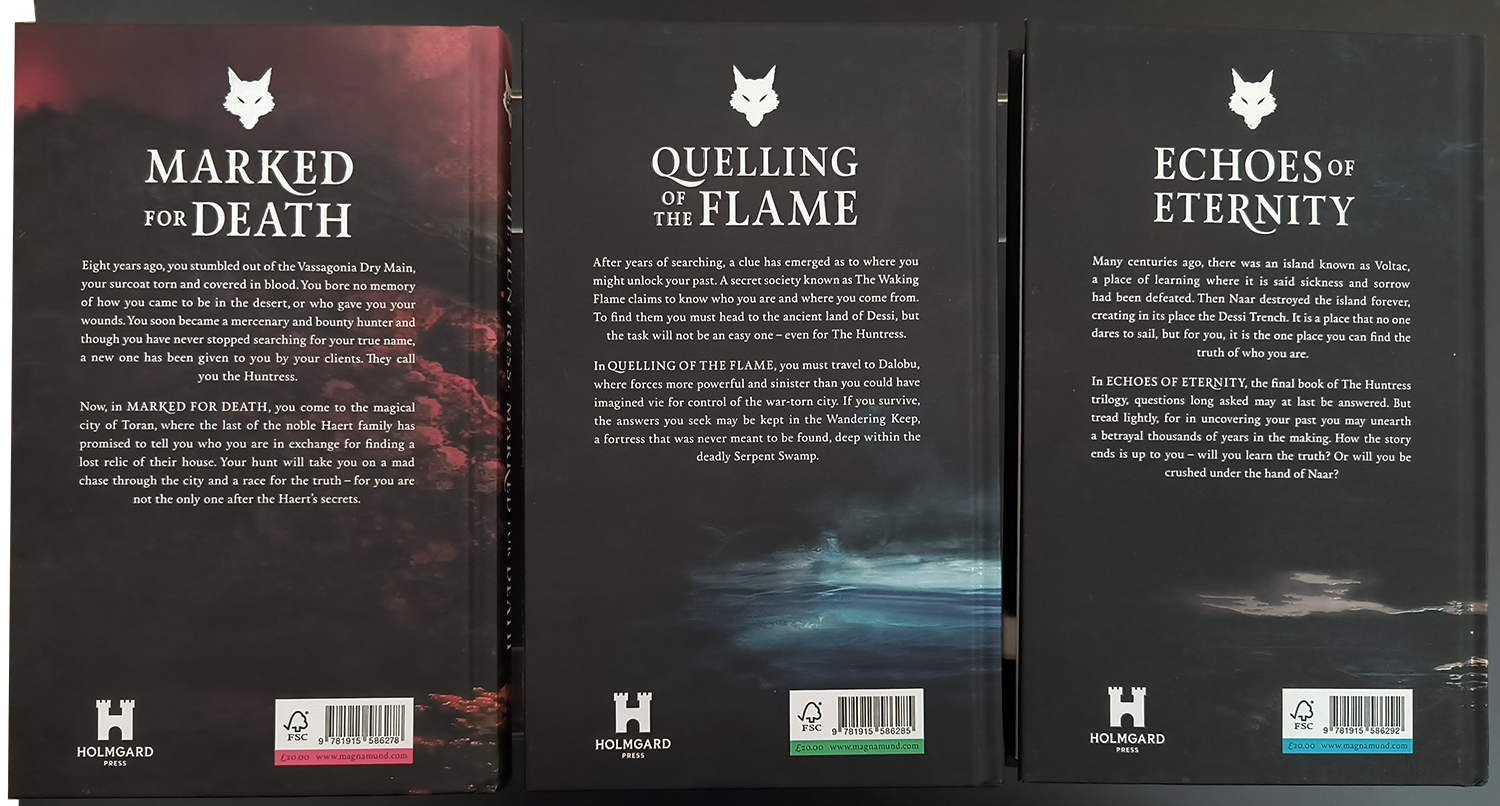
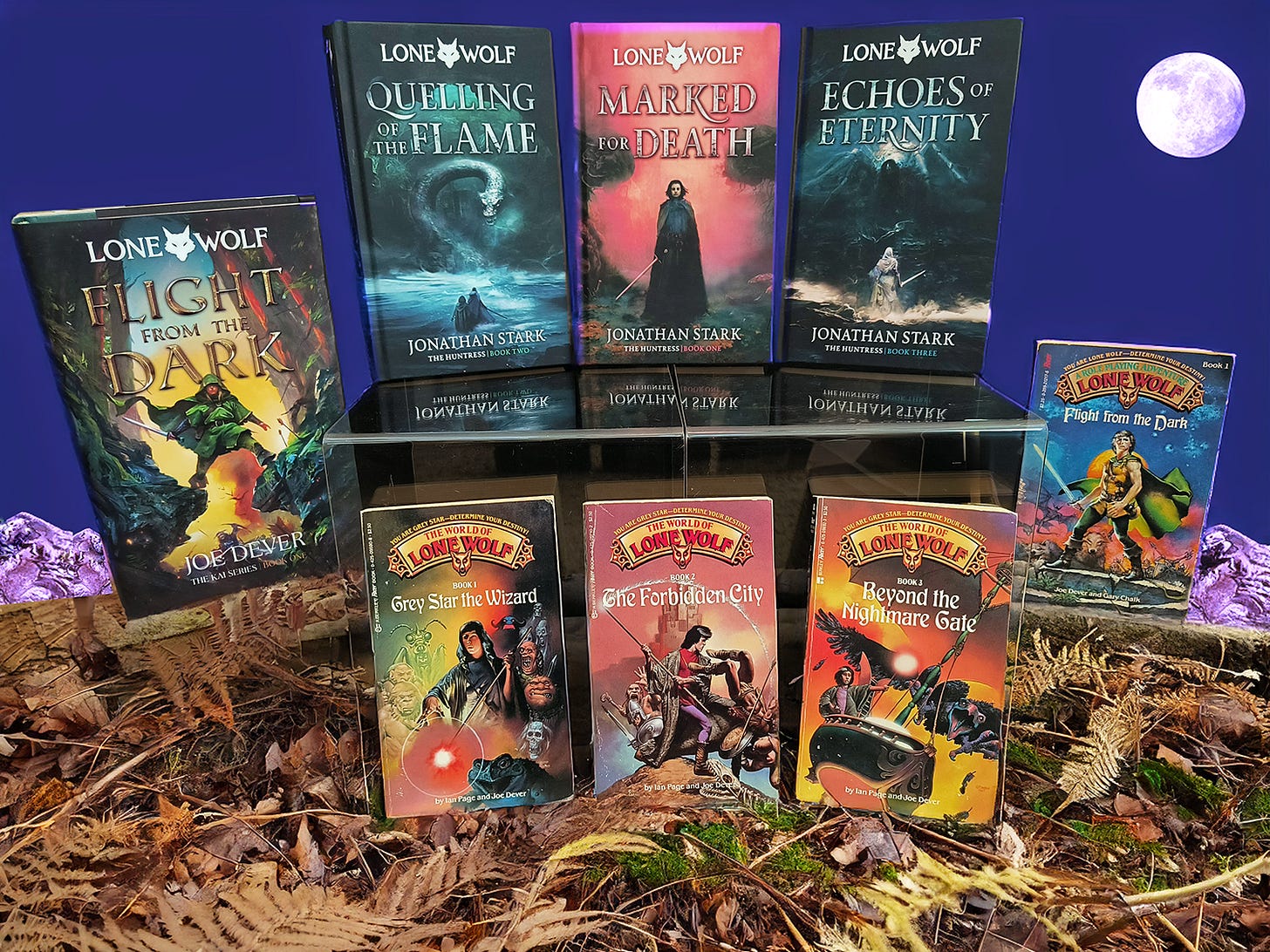


I'm new to gaming in general and had never heard of gamebooks before. Now I'm thoroughly curious and interested. Off to explore! (and I have a fantastic starting point, ty)
Definitely going to check these books out! This interview was a great read!